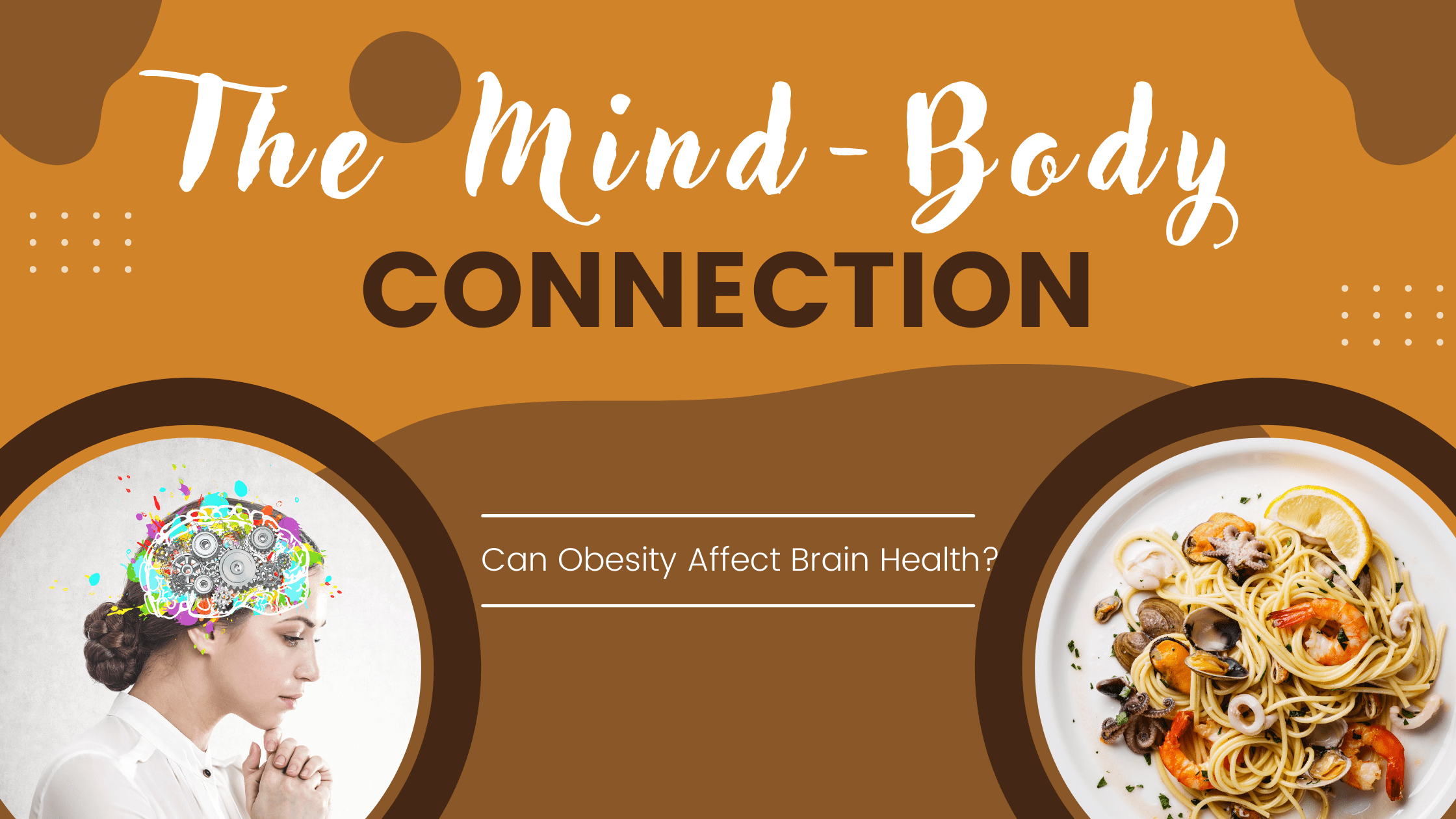Last updated on July 30th, 2023 at 09:09 am
Anxiety disorders include generalized panic attacks, phobias, obsessive-compulsive disorder, posttraumatic stress disorder, separation anxiety disorder, and specific phobia. These conditions affect people differently, but they often involve excessive worrying, feeling out of control, trouble sleeping, and physical symptoms like heart palpitations or shortness of breath. They’re common mental health problems, affecting about 40 million Americans each year.
How obesity is linked to mood and anxiety disorders like depression? A mental health condition is a mental illness that makes you too anxious to feel calm, even when facing danger. People who suffer from these conditions are at an elevated risk of becoming obese.
According to Nicholas Bakalar from “The New York Times“, when BMI increases, less oxygenated red cells flow to the brain, which could be one reason why overweight people are at greater risk for developing dementia.
A new study has shown that obese people have lower blood flow to their brains than non-obese people. This could be one reason why obesity is linked to an increase in the likelihood of developing Alzheimer’s.
Signs and symptoms of anxiety
Anxiety disorders affect people differently. Some people feel anxious about everyday things like traffic jams or public speaking; others suffer panic attacks where they become overwhelmed with fear and worry. Anxiety disorders are often accompanied by physical symptoms such as muscle tension, rapid heartbeat, sweating, shaking, nausea, dizziness, shortness of breath, chest pain, and diarrhea.
People with anxiety disorders may avoid situations that make them uncomfortable because they don’t want to face what might happen. They may also try to distract themselves from their fears by engaging in substance abuse or compulsive behaviors.
Depression And Anxiety Disorders Often Go Hand-in-hand With Obesity
Obesity is one of the most common risk factors for developing many different types of mental illness, according to research published in the journal Obesity Reviews. People suffering from mental illnesses such as schizophrenia, major depressive disorder, and bipolar disorder are more likely to become obese because of medication side effects, lack of exercise, and poor diet.
What Mental Health Conditions Are Linked To Obesity?
The study found that people with eating disorders like bulimia nervosa, binge eating disorder, and compulsive overeating had a higher chance of being overweight or obese. Those with obsessive-compulsive disorder were also more likely to be obese. Other studies have shown that people with autism spectrum disorder are also more prone to becoming obese.
Can Obesity Cause Anxiety Disorders?
Anxiety disorders like social phobia and panic attacks often go hand-in-hand with eating disorders such as bulimia nervosa and binge eating disorder. In fact, according to the Anxiety Disorders Association of America, about half of people with anxiety disorders report having an eating disorder.
While there isn’t much known about how exactly anxiety causes someone to overeat, researchers do know that high levels of cortisol — the hormone produced during stressful situations — can cause fat cells to grow larger.
The link between anxiety and obesity is further supported by studies showing that women who experience greater amounts of anxiety tend to eat more. For example, one study found that obese women had higher levels of anxiety than those with normal weights.
Another study showed that patients suffering from generalized anxiety disorder experienced increased appetite and gained weight over time.
In addition, people who suffer from anxiety are more likely to engage in unhealthy behaviors that could ultimately lead to weight gain. One study found that women with panic disorder were twice as likely to smoke cigarettes compared to women without the disorder.
Other studies suggest that people with anxiety disorders are more likely to drink alcohol excessively, use drugs, and engage in risky sexual behavior.
Boost Your Mood: Foods That Fight Depression
The foods we eat can have an enormous impact on the structure and function of our brains. A healthy diet can help us maintain our cognitive abilities for longer periods of time. Your brain requires lots of energy to function properly, so it must be fed well.
The human body needs certain nutrients to remain healthy. For example, omega-3 fatty acids help rebuild and repair damaged neurons, and antioxidants reduce cellular damage and inflammation, both of which are associated with cognitive decline and neurodegenerative diseases, such as Alzheimer’s.
The Mediterranean diet is one of the most studied diets in regard to its effects on mental health. In fact, researchers have found that people following a Mediterranean diet had lower rates of depression compared to those eating fewer fruits and vegetables.
A study published in the journal Nutrients looked at how much fruit and vegetable intake correlated with depressive symptoms among over 2,500 adults. They found that participants who ate fewer servings of fruits and vegetables per day reported more severe symptoms of depression.
Another study published in the Journal of Affective Disorders found that women who consumed more fiber, vitamin B6, magnesium, folate, iron, zinc, calcium, potassium, and omega-3 fatty acids had lower levels of depression.
A study published in the American Journal of Clinical Nutrition found that people who eat fish three times a week had a 50% reduction in risk of developing major depression.
When it comes to mental health, our diet plays a significant role in influencing our mood and overall well-being. Certain foods contain nutrients that have been linked to reducing symptoms of depression and promoting positive mental health. In this article, we will explore the types of foods that can help fight depression and improve your mood.
1. Mood-Boosting Nutrients
Mood-boosting nutrients are specific vitamins, minerals, and other compounds found in certain foods that have the potential to positively influence our mood and emotional well-being. These nutrients play various roles in the brain, affecting neurotransmitter production, hormone regulation, and overall brain function.
Omega-3 Fatty Acids
Found in fatty fish like salmon, mackerel, and sardines, as well as walnuts and flaxseeds, omega-3 fatty acids have been associated with improved mood and reduced symptoms of depression. They play a crucial role in brain health and help regulate neurotransmitters that impact mood.
- Fatty fish (salmon, trout, sardines)
- Chia seeds
- Walnuts
Antioxidants
Antioxidants, such as vitamin C, vitamin E, and various phytochemicals, help protect the brain from oxidative stress and inflammation. They can be found in colorful fruits and vegetables, berries, nuts, and seeds.
- Berries (blueberries, strawberries, raspberries)
- Dark chocolate (in moderation)
- Spinach
- Kale
- Green tea
B Vitamins
B vitamins, including vitamins B6, B12, and folate (B9), are essential for brain function and the synthesis of neurotransmitters like serotonin, dopamine, and norepinephrine. Good sources of B vitamins include leafy greens, whole grains, legumes, eggs, and lean meats.
- Whole grains
- Legumes (beans, lentils)
- Leafy greens (spinach, kale)
- Avocado
Amino Acids & Magnesium
Magnesium is involved in hundreds of biochemical reactions in the body, including those related to mood regulation. Low magnesium levels have been associated with symptoms of depression and anxiety. Good dietary sources of magnesium include leafy greens, nuts, seeds, and whole grains.
Amino acids are the building blocks of proteins, and certain amino acids play a role in the production of neurotransmitters. For example, tryptophan is needed for serotonin synthesis, while tyrosine is involved in dopamine production. Good sources of amino acids include lean meats, poultry, fish, legumes, and dairy products.
2. Serotonin-Enhancing Foods
Serotonin is a neurotransmitter that plays a crucial role in regulating mood, emotions, and overall well-being. Low levels of serotonin have been associated with depression and other mood disorders. Serotonin-enhancing foods are those that contain nutrients or components that support the production or availability of serotonin in the brain. These foods can help improve mood and promote a sense of well-being.
Complex Carbohydrates
Foods rich in complex carbohydrates, such as whole grains, sweet potatoes, and beans, can increase serotonin levels. These carbohydrates help boost the uptake of tryptophan, an amino acid precursor to serotonin, in the brain.
- Whole grains (oats, brown rice, quinoa)
- Sweet potatoes
- Beans
Tryptophan-Rich Foods
Tryptophan is an essential amino acid that the body needs to produce serotonin. Foods high in tryptophan include turkey, chicken, nuts (such as almonds and walnuts), and seeds (such as pumpkin and sunflower seeds). Consuming these foods can increase tryptophan availability and, in turn, support serotonin production.
- Turkey
- Chicken
- Nuts (almonds, walnuts)
- Seeds (pumpkin seeds, sunflower seeds)
Probiotic-Rich Foods
The gut-brain connection is a growing area of research, and studies suggest that a healthy gut microbiome is linked to improved mental health. Probiotic-rich foods, such as yogurt (unsweetened) and fermented foods like kimchi and sauerkraut, promote the growth of beneficial gut bacteria. This, in turn, may positively impact serotonin production and mental well-being.
- Yogurt (unsweetened)
- Fermented foods (kimchi, sauerkraut)
Conclusion
It’s important to note that while serotonin-enhancing foods can support mood and well-being, they should not be considered the sole treatment for depression or other mental health conditions. If you’re experiencing persistent feelings of depression or other mental health concerns, it’s essential to seek professional help from a healthcare provider or mental health professional. They can provide an accurate diagnosis and guide you towards appropriate treatment options.
While food alone cannot cure depression, incorporating these mood-boosting and serotonin-enhancing foods into your diet can be a valuable addition to your overall mental health regimen. Remember, it’s important to maintain a balanced diet, engage in regular physical activity, and seek professional help if you are experiencing symptoms of depression. Take care of your mental well-being by nourishing your body with foods that support positive mood and overall health.
We hope you found this information helpful and informative! If you have any additional thoughts or experiences related to managing stress and its impact on weight regulation, we encourage you to share them in the comments below. We love hearing from our readers and appreciate any insights you may have to offer.











Let’s prioritize our health by adopting a healthy diet, engaging in regular physical activity, and maintaining a healthy weight
Please, go on. It’s my pleasure